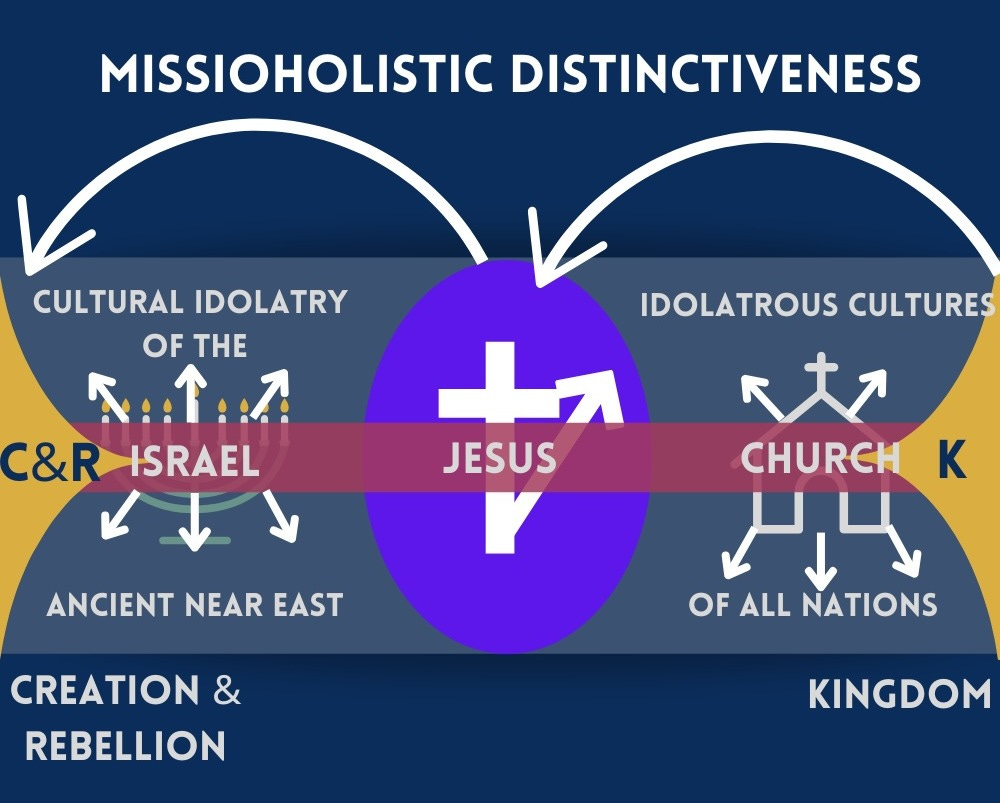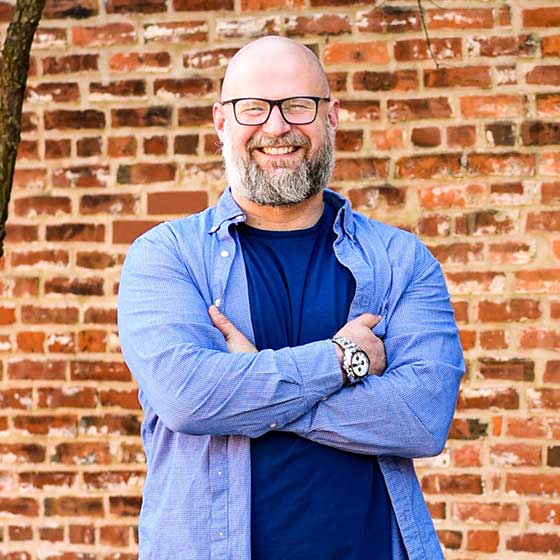As a child, I spent many weekends with my great-grandmother, who had lived through incredible historical changes—from the first automobile to the moon landing. Her stories fascinated me and anchored me in a stable world despite rapid technological advancements. But if I had told her that Bruce Jenner, an Olympic champion, would one day identify as a woman and that millions would accept this as reality, she would have laughed and called me crazy. And yet, here we are.
We live in an age where reality itself is contested. Once clear boundaries—biological, historical, and moral—are now fluid, shaped not by objective standards but by personal experience and emotions. The phrase “my truth” has replaced “the truth,” with feelings becoming the ultimate authority.
The Cultural Shift: From Objective Reality to Personal Truth
This shift didn’t occur overnight. It resulted from a philosophical revolution that prioritizes self-expression over external authority. Thinkers like Jean-Jacques Rousseau argued that human nature is inherently good, and society corrupts us. If the problem is external oppression rather than internal sin, then salvation comes not through repentance and transformation but through self-discovery and authenticity.
Fast forward to today, and we see Rousseau’s influence everywhere. Disney movies, for example, reinforce the idea that our deepest desires define us, as Jiminy Cricket once sang,
“When you wish upon a star
Makes no difference who you are
Anything your heart desires
Will come to you.”
This may seem innocent enough, but it subtly teaches that our identity and destiny come from within rather than from outside of us. If we just wish hard enough, we can shape reality to fit our desires. This mindset has shaped generations and, unfortunately, it doesn’t work. Reality doesn’t bend to our wishes.
The Limits of “My Truth”
While defining our reality might seem appealing, it quickly collapses when confronted with the real world. Take Maia, for example, who had been living as a transgender man in Israel. On October 7, 2023, when Hamas attacked, she fled into a bomb shelter. Reflecting on the chaos, she said:
“’It was really in those moments where I was like, why the hell am I even doing this trans thing anymore,’ she said. ‘It was taking so much brain space to play all of these trans mind games. I realized that my body is the only thing that is going to allow me to survive, and that my body is not a pathology.’”1
She continued,
“I became significantly less concerned about all of this gender crap,” Maia, 25, told The Post. “I realized that there were more important things in life than my gender dysphoria, because I had to just save myself.”2
This is a perfect example of how expressive individualism can collapse when confronted with life’s real demands. It’s a belief of luxury.
I once thought a friend had ghosted me, only to learn later that he had been offline, dealing with a family crisis. My perception created a false narrative that felt true, but it was not. Similarly, many people today try to construct their own realities, yet they are bound by unchanging truths.
No matter how strongly I believe gravity shouldn’t apply to me if I jump off a building, I will fall. No matter how sincerely I think I’m 25 years old and 6’6 and wearing Air Jordans my basketball skills won’t improve. Feelings don’t define reality—as Ben Shapiro has said repeatedly, “Facts don’t have feelings.” However, our culture increasingly suggests they do.
The Reality of Truth: Gender and Identity
This mindset is especially evident in the realm of gender and identity. The belief that gender is fluid and self-determined is a modern idea with no historical precedent. For millennia, societies recognized the biological and sociological realities of male and female. Yet, today, challenging this ideology is met with outrage, as if questioning someone’s self-defined truth is an act of violence.
But if truth is purely subjective, what happens when two competing “truths” collide? What happens when one person’s “truth” invalidates another’s? Without an objective standard, we’re left with power struggles—whoever shouts the loudest or wields the most power wins—which is why politics has become so crazy for Christians. James Davison Hunter suggests that politics has become so important to Christians because it is the last remaining sphere in the public square where they can still exert influence.3
Expressive Individualism and the Church
Robert Bellah’s Habits of the Heart identifies “expressive individualism” as a defining feature of American culture—the belief that personal authenticity is the highest good.4 Charles Taylor and Carl Trueman have expanded on this, showing how expressive individualism has shaped everything from politics to religion.5,6
This cultural shift has not left the church untouched, as Carl Trueman said, “We are all expressive individualists now.” Evangelicalism, once rooted in the authority of Scripture, has often capitulated to cultural trends to remain relevant, not realizing that they have unknowingly jettisoned the prophetic bite of the Christian faith. Worship has become a tool for personal inspiration rather than communal formation. Sermons increasingly focus on self-improvement rather than biblical theology. Even mission and evangelism are often framed in terms of personal fulfillment—“Come to Jesus so you can live your best life.”
The result is a gospel subtly reshaped into a message of self-actualization. Instead of calling people to conform to Christ’s truth by surrending to him, denying themselves, taking up their cross, and following him (Matthew 16:24), we have encouraged them to invite Jesus into their journey of self-discovery. Rather than standing as a countercultural witness, the church has often become a mirror of the culture.
Recovering the Gospel in an Age of Self-Invention
This is where missioholism offers a necessary corrective. If the church is to be faithful to its calling, it must resist the cultural drift toward self-invented truth and reclaim the reality of the gospel as found within the Word of God.
Missioholism challenges the individualistic distortion of faith by calling us back to a holistic, biblical vision—one that is deeply communal, missional, and countercultural. In the Old Testament, Israel was called to be a distinct people, a light to the nations, set apart by their faithfulness to God. This distinction required them to resist the cultural idolatries of the surrounding nations. Likewise, the church today is called to embody that same missioholistic distinctiveness, living as a set-apart people whose lives reflect God’s mission in the world. Building on Goheen’s framework, we refer to this as missioholistic distinctiveness, adapting his insights to emphasize the church’s holistic engagement in God’s mission.
The Gospel: A Call To Radical Faithfulness
The gospel is not a tool for self-improvement or a pathway to self-discovery. It is a declaration that Jesus Christ is Lord—not our ambitions, desires, or cultural trends. Through His death and resurrection, He is making all things new, not merely enhancing the lives we already have but calling us into an entirely new way of being.
The Gospel is framed by the Kingdom story and that is embodied by a distinct transcultural community called the church, who then engage the culture—both positively in what the church does, but part of the distinctiveness is seen in its negation—what it doesn’t do.
This demands more than passive belief. It requires a rejection of the consumer-driven, self-focused faith that has crept into the church. It means refusing to conform to a shallow, cultural Christianity that prioritizes comfort over conviction. Instead, we are called to live as a people transformed—shaped by the cross and resurrection, not by fleeting ideologies.
The world does not need a church that blends in. It needs a church that stands out—one that embodies God’s truth, love, and justice rather than mirroring society’s latest trends or Christianizing the idolatries of self-sufficiency, speed, fame, pragmatism, tribalism, nationalism, the American dream, or power and control.
This is not new. The first-century church faced a world as pluralistic and relativistic as ours. Rome had countless gods, and people were free to worship as they pleased—as long as they acknowledged Caesar as Lord. But Christians refused. They proclaimed that Jesus alone is Lord, and they suffered for it. Marginalized, persecuted, and even killed, their radical faithfulness changed the world.
The Call Today: Stand Firm, Speak Truth
We face the same challenge today. Many who claim the name of Christ have subtly surrendered to the idols of our age: materialism, consumerism, and expressive individualism. Although they may speak Christian words, cultural pressures have reshaped their faith rather than the gospel.
We cannot fall into the same trap. We must reject the false gods of self-made identity and cultural accommodation. Instead, we must boldly proclaim that identity is not something we construct—it is something we receive from God. We must resist the urge to reshape the gospel to fit our preferences and instead allow the gospel to reshape us, forming communities that embody the new creation made possible by Christ’s resurrection.
A Call to Missioholism
The question is not whether the church is shaped by culture—it already is. The real question is whether we will recover a faith that challenges culture rather than capitulating to it. That’s where missioholism comes in.
Missioholism provides the framework for this recovery. It calls us beyond self-focused spirituality to gospel-centered transformation, beyond individualism to a shared mission within a covenant community of Christ-followers, and beyond self-invention to a renewed identity in Christ.
Our world is drowning in the illusion of “my truth,” a concept my great-grandmother never would have understood. She lived when truth was not up for negotiation—a time that must be reclaimed. The church must again proclaim the unchanging truth: Jesus Christ, the same yesterday, today, and forever.
Will we rise to the challenge?
Next week, we will continue this series by exposing the chief deity of American civil religion: moral therapeutic deism.
Schlott, Rikki. 2025. “October 7th Made Me Realize Being Trans Is a Luxury Belief—So I’m Detransitioning.” New York Post, February 20, 2025. https://nypost.com/2025/02/20/us-news/i-decided-to-detransition-after-living-in-israel-on-oct-7/. Accessed February 25, 2025.
Ibid.
Private conversation with the author.
Bellah, Robert N. Habits of the Heart: Individualism and Commitment in American Life. 1st California paperback ed. Berkeley: University of California Press, 1985.
Trueman, Carl. The Rise and Triumph of the Modern Self: Cultural Amnesia, Expressive Individualism, and the Road to Sexual Revolution. Wheaton: Crossway, 2020.
Taylor, Charles. Sources of the Self: The Making of the Modern Identity. Cambridge, MA: Harvard University Press, 1989.



